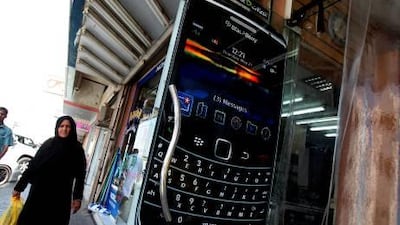Canadian researchers are planning to crack the code that conceals the location of Research In Motion's (RIM) BlackBerry servers.
Over the past several months, governments around the world have threatened to ban BlackBerry services unless they receive access to encrypted data transmitted by the device.
RIM has avoided BlackBerry suspensions in India, Saudi Arabia and the UAE after discussions between government authorities and company officials concerning access to secure data sent using the device.
But the details of how RIM complied with these governments' regulatory demands have not been released.
Industry observers have suggested the company installed BlackBerry servers in each country.
To try to fully determine how RIM appeased regulators, researchers from the Citizen Lab at the University of Toronto and a think tank based in a Ottawa have unveiled a website, located at www.rimcheck.org, that is designed to gather information on how traffic exits the BlackBerry network, depending on the country in which the user is located.
"This will allow us to collect data on how traffic flows through BlackBerry networks," said Ronald Deibert, the director of the Citizen Lab who added that any discoveries could help to pinpoint the location of servers.
"We collect a combination of automatic and user-inputted data, which is explained on the site itself. This gives us some indication of where the visits are being routed."
Mr Deibert said the findings will be published.
"Our aim is also to change how RIM itself operates," he said. "We believe that it would be better for the company to be more transparent about these issues."
The Telecommunications Regulatory Authority (TRA) said it would not block BlackBerry services in the UAE after the "positive engagement and collaboration of RIM". Neither RIM nor the TRA have provided details of the resolution. There are about 500,000 BlackBerry users in the UAE, most of whom are Etisalat subscribers.
The security behind the BlackBerry service has been one of the device's main selling points in the increasingly competitive smartphone industry. Canada and the UK are the only known countries that have a specialised BlackBerry network within each country, although unconfirmed reports suggest there are similar servers in China and Russia.
Research conducted by the Citizen Lab made international headlines last year after it revealed China employed a cyber-espionage network of hackers to access secret data on computers belonging to embassies, foreign ministries and other government offices.

